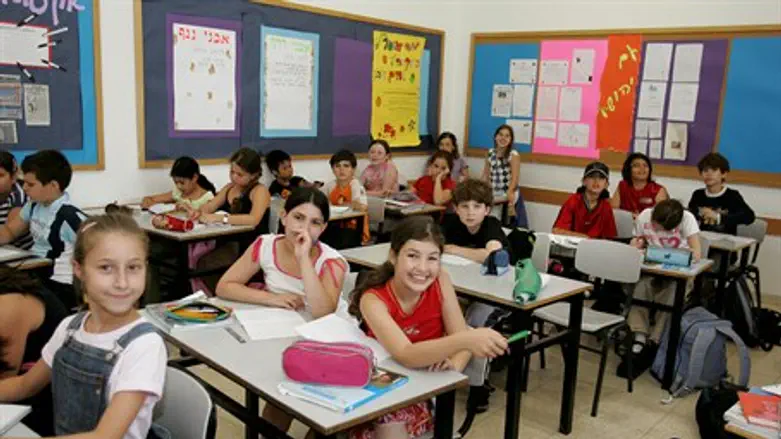
Big Brother will soon be "enrolling" in the Israeli school system. On Sunday, the Education Ministry issued a policy review on security and surveillance cameras in schools, schoolyards, lunchrooms, and other areas. The bottom line: Israeli kids can expect to be under the “all-seeing eye,” except, perhaps, when they go to the bathroom.
Currently, 60% of high schools and 30% of elementary schools have cameras installed. However, the cameras were installed without a set policy, at the whim of a principal or parents' committee, and did not necessarily cover trouble areas of buildings. In its new policy statement, the Ministry heartily endorses cameras to cover as many areas of the school grounds as possible, “to provide extra protection and to allow authorities to track violence, bullying, and alcohol, smoking, and drug use.”
Principals will have the authority to decide what cameras to install and where to install them. Cameras may be installed in order to protect students and faculty from violence, theft, and terrorism. All steps must be taken to ensure student privacy, however; in circumstances where a security guard or a teacher can be placed on patrol, for example, there might not be any need for cameras, the policy statement says.
Schools that do use cameras, the Ministry said, should use them to the hilt, with cameras covering all public and classroom spaces. Microphones, however, are out, as are cameras in bathrooms – a decision, sources said, that the Ministry came to only after a great deal of debate, because bathrooms are a center of illicit student activity.
Principals and a special teacher staff will have the right to review footage. If any unacceptable behavior is discovered, the offenders are to be referred to a special office in the Ministry which will deal with the issues. Footage of “normal” behavior that will not be used as evidence of a student's misbehavior must be erased within three days of recording.
If a school does decide to go with cameras, the policy paper states, it must inform parents of the fact, and specify the areas where cameras are to be placed. If parents have a problem with cameras, they can appeal to a special Ministry board which will consider their complaints. Schools will also be required to hold an assembly for parents to discuss the camera issue at least once a year. And, schools will be required to place prominent signs in areas that are under surveillance, as a warning to students that they are being watched.
According to Michal Cohen, Director-General of the Ministry, “instituting measures for the protection of students and teachers will provide a safer atmosphere for everyone in school. Providing a safe, creative environment is essential for the development of students, for their peace of mind, and for their feelings of security. With that, installation of cameras in schools in and of itself is not a solution, and does not cancel out the need for teacher supervision throughout the school day.”